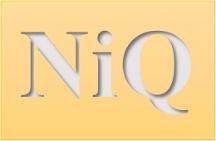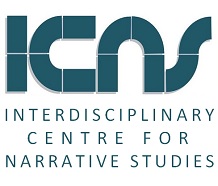Narrative in Question Symposium and grants workshop
Thursday 15 June 2017, 9.00AM to 5.00pm
External speakers:
Liesbeth Korthals-Altes (Groningen): 'Narrative fiction and Negotiations of Value – Genre Framing and Ethos Attributions.'
In this paper I will develop the idea that controversies in interpretations and valuations of literary works are not just matters of idiosyncratic differences in taste or life and literary experience; to some extent, they can be traced back to different ways in which readers/interpreters frame the kind of work (genre) they have been engaging with as well as the kind of author, including and his or her ethos (I borrow the notion of frame from Erving Goffman, Frame Analysis,1974). For instance, Dave Eggers’ A Heartbreaking Work of Staggering Genius (2001) has been framed by many readers and professional critics as a highly autobiographic work; their documented readings show the importance of ethos traits such as sincerity and authenticity. Others framed the book as sophisticated (semi-)fiction about ‘writing the self’ and the pervasive imperative of self-expression and authenticity in our cultures, thus re-framing - and perhaps problematizing - the auctorial narrator’s display of sincerity. Negotiations of the meaning and value of our experiences in relation to such ‘overarching’ framing acts are evidently not restricted to literary fiction.
Liesbeth Korthals Altes is professor of General Literature in the Department of Arts, Culture, and Media at the University of Groningen. She published on narrative theory, with a preference for issues of irony, (un)reliability, and value negotiations. She is the author or co-editor of several books including Authorship Revisited: Conceptions of Authorship around 1900 and 2000 and The Autonomy of Literature at the Fins de Siècles (1900 and 2000): A Critical Assessment. Her latest book, Ethos and Narrative Interpretation (University of Nebraska Press, The Frontiers of Narrative series, 2014) was awarded the Perkins prize.
Greta Olsen (Giessen): 'The Ideological Work of Images of Refugeeism.'
This talk makes exploratory moves in charting the ways in which form-function analysis can be employed as a type of ideological critique. In this case, I do not differentiate between what has been the classical purview of narratology – written verbal texts – and texts that can be narrativized but are less clearly narrative ones. This includes visual images, including mono images, and other cultural-political phenomena. I would like to elucidate the promise of this type of nuanced descriptive analysis as well as some of the problems that are involved in it. These include assumptions that the analyst may need to make about what the intention behind narrative texts are and about how the text shall be received and under what conditions, as well as about how the mind works. My effort is to use narrative analysis to address political messages with nuance As a case study, I shall take recent images of refugeeism from the German and international contexts.
Greta Olson is Professor of English and American Literary and Cultural Studies at the University of Giessen, general editor of the European Journal of English Studies, and co-founder of the European Network for Law and Literature Research. She works and wishes to facilitate projects on cultural approaches to law, the politics of narrative, critical media and American studies, and feminism and sexuality studies. Contact: Greta Olson Greta.Olson@anglistik.uni-giessen.de
Merja Polvinen (Helsinki): 'Enactive Processing of Science Fiction Narrative.'
In the study of science fiction, the focus has rarely been on narrative form. Generic plot-types and techniques of exposition have received their fair share of attention (see e.g. Malmgren 1991; Mendlesohn 2008), but there are still very few scholars focusing on the specifics of narration, not to mention on structures of narration that challenge the familiar techniques of the genre. This presentation takes up the discussion about narrative form in science fiction, and extends it to works where conventional forms are turned back upon themselves. My theoretical framework for this task is cognitive narratology, where the structures of storytelling are put in dialogue with our understanding of the functions of the human mind. I argue firstly, that science fictional narratives can be seen to build on literalised narrative concepts and conventions, and secondly, that the analysis of such narratives helps us to develop new ways for cognitive narratology to deal with self-reflection and explicitly artificial form.
Dr Merja Polvinen is a senior lecturer in English at the University of Helsinki. Her dissertation on chaos theory and literature came out in 2008, and recent articles on cognitive approaches to literary self-reflection are out e.g. in Interdisciplinary Literary Studies and the recent volumes The Cognitive Humanities, edited by Peter Garratt, and Cognitive Literary Science, edited by Burke and Troscianko. Forthcoming is an article on Peter Watts’s SF novel Blindsight in the Stepney and Walsh (eds.) Narrative Complexity. Last year, she organised the Cognitive Futures in the Humanities conference, and she is in charge of the Worldcon 75 Academic Track in Helsinki in August this year.
Grants workshop chair:
Mark Jenner (Culture and Communication Theme Champion)
Narrative in Question is an ICNS research programme for Spring and Summer terms 2017, bringing together visiting speakers and York researchers with narrative-related interests. The core events are a series of seminars and guest lectures, and a culminating workshop featuring international contributors and a workshop focussed upon developing an interdisciplinary research project.
The idea for the programme is that the question of narrative provides a conceptual hub for dialogue amongst participants with widely divergent individual research agendas. The seminars will feature individual research projects in which the issue of narrative is fundamentally at stake. All project participants share a concern to put narrative in question, whether as a theoretical concept, as a mode of discourse or cognition, as a particular corpus or tradition, as a set of formal devices and techniques, as a use of specific media, or as a research methodology.
See the full programme of events
Location: Seminar Room BS/008, Humanities Research Centre, Berrick Saul Building, University of York Campus West
Email: richard.walsh@york.ac.uk


